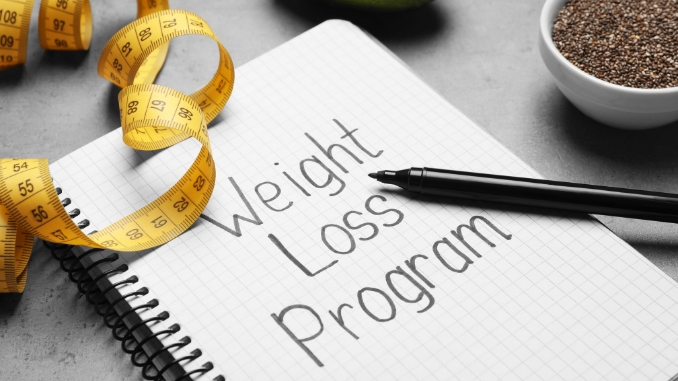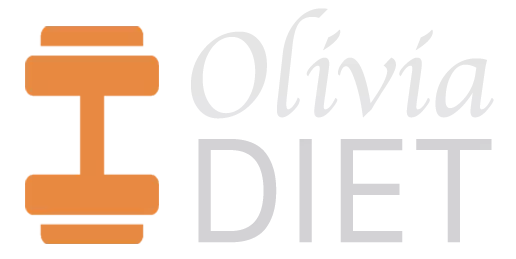The Weight Loss Journal: Guide Yourself To Your Success

Last updated on April 3rd, 2025 at 07:08 pm
Tracking your progress as you lose weight can be incredibly powerful. A weight loss journal helps you stay motivated, recognize small victories, and understand what truly works for you.
By keeping a record of your habits, challenges, and achievements, you create a personal roadmap toward lasting success.
In this article, we’ll explore why tracking matters and how a weight loss journal can help make your journey more rewarding and effective.
What is a Weight Loss Journal
A weight loss journal is a personal notebook where people record their food, exercise, feelings, and progress towards losing weight. Think of it as a combination of an exercise journal, food journal, workout planner, and meal tracker all in one.
Its purpose is to help individuals become more aware of their eating habits and stay motivated. Not to be confused with a bullet journal, a regular journal requires time and detailed recordings of a person's progress.
By writing down what they eat and how they feel, users can make better choices and celebrate their successes.
There are two main types of weight loss journals: physical and digital.
Physical Journal

Physical fitness journals are paper notebooks that people use to write by hand. Many enjoy weight loss journaling with the feeling of putting pen to paper, as it feels more personal and also helps with focus without the distraction of apps.
Physical journals don’t rely on batteries or the internet, and they’re easy to customize with drawings or stickers.
However, they can be hard to organize if you have a lot of information, and you can’t set reminders like you can with digital tools.
Digital Journal

Digital journals are apps or websites where you can type and save entries on your phone, tablet, or computer. A weight loss tracker like a digital journal often comes with features like reminders, tags, and tracking options for things like workouts or meals.
They are convenient because you can carry them anywhere on your device, and they make it easy to search entries. However, some people find it less personal and miss the hands-on feel of a physical notebook.
Benefits of Keeping a Weight Loss Journal
Keeping a weight loss journal has many benefits that can support people in their health journey. In fact, according to McManus (2019) from Harvard; people who are serious about losing weight [1] tend to keep a journal to both observe and change their habits as they progress.
Here are just some of the many examples of the benefits a weight loss journal provides:
1. Increases Accountability
When you record everything you eat and how much you exercise, it becomes harder to ignore your choices. This practice helps you stay honest with yourself about your eating habits and physical activity.
Knowing that you'll be logging your actions can encourage you to make healthier choices, helping you feel more in control of your weight loss journey.
2. Helps With Eating and Activity Patterns

By regularly logging your meals, snacks, and exercises, a weight loss journal reveals trends over time. For example, you might discover that you tend to overeat when stressed or that you exercise more consistently in the mornings.
Identifying these patterns can also be valuable for adjusting your routine, allowing you to break unhealthy habits or build new, positive ones that support your goals.
3. Shows Foods Impact on Mood and Weight
Noting down what you eat can show how different foods make you feel, both emotionally and physically. For instance, you might find that certain foods leave you feeling tired, while others boost your energy.
Seeing how specific foods affect your mood and weight can encourage mindful eating, helping you make choices that align with how you want to feel.
4. Track Progress and Provides Motivation

Seeing tangible results, even in small steps, can be very motivating. Whether it’s losing a few pounds, improving your endurance, or hitting a workout milestone, writing down these achievements provides a visual reminder of your progress.
Reviewing these milestones can give you the motivation to keep pushing forward, especially on days when you need a little encouragement.
5. Encourages Goal-Setting
A weight loss journal is an excellent tool for setting clear [2], achievable goals, like losing a specific amount of weight or improving your running distance. Writing down goals makes them feel more real and gives you a sense of direction.
By having them recorded, you can revisit these goals regularly, track your progress toward them, and also adjust as needed to keep challenging yourself.
6. Provides Space and for Reflection
Weight loss is not only physical; it’s emotional and mental too. A journal offers a safe space to write down your thoughts, frustrations, and victories.
Reflecting on your journey helps you understand your relationship with food, exercise, and self-care. This awareness can deepen your commitment to a healthier lifestyle by addressing underlying emotions and patterns.
7. Builds Healthy Habits for the Long Term
When you keep a weight loss journal consistently, it fosters healthy routines over time. Tracking meals, exercise, and emotions helps reinforce positive behaviors, turning them into lasting habits.
These small daily actions can add up to a major lifestyle shift, supporting sustainable weight loss and long-term well-being.
How to Start Your Weight Loss Journal
Starting a weight loss journal is simple and can be done in a few steps.
First, choose the right format for your journal, like a notebook, app, or online platform. A notebook allows for handwriting, which some find relaxing, while apps can make tracking easier.
Next, include some important items in your journal. Record your daily food intake, writing down everything you eat and drink to understand your habits.
Note your exercise routines, including the type and duration of activity. Also, track your water consumption, as staying hydrated is essential for health.
Finally, write about your mood and energy levels each day, as this helps you see how feelings affect your eating and activity. By including these basics, your journal will be a helpful tool on your weight loss journey.
What to Track in Your Weight Loss Journal
In your weight loss journal, it’s important to track certain details to help you succeed.
Sure, it is better if you personalize your journal with various aspects to make it unique, but here are some important things that every weight loss journal must have:
1. Daily Calorie Intake

Tracking your daily calorie intake with a fitness journal or meal planner helps you stay within a healthy limit that aligns with your weight loss goals.
Writing down everything you eat, from meals to snacks, gives you a clear picture of your eating habits and helps you identify any areas where you may be consuming extra calories.
Besides total calories, it’s useful to keep track of macronutrients—carbohydrates, proteins, and fats—since each plays a different role in your diet. Carbohydrates provide energy, proteins support muscle repair, and fats are important for overall health.
Meal planning helps you make more informed choices and avoid imbalances, such as too many carbs or too few proteins, which can affect your energy and progress.
2. Exercise Details
Recording your exercise habits in detail allows you to see which types of workouts are most effective and enjoyable for you.
Write down the type of exercise you did, such as cardio, weight lifting, or yoga, as well as the duration and intensity. For example, did you go for a light walk, a vigorous run, or a strength training session?
Adding details about intensity, like whether the workout was light, moderate, or intense, helps you adjust your routine over time to include a mix of easy and challenging workouts.
You can also note how you felt during and after each session—energized, tired, or sore—which can guide you in tailoring your workouts to keep them enjoyable and sustainable.
3. Take Regular Measurements
Taking regular measurements helps you see physical progress beyond just the scale.
While it’s common to focus on weight loss, recording other measurements, such as around your waist, hips, arms, and legs, provides a fuller picture of your progress, especially since muscle gain and fat loss can influence body shape differently than weight alone.
Weighing yourself on a weekly or monthly basis under similar conditions, like in the morning before eating, can reduce daily fluctuations that don’t reflect real changes.
Photos are also a great addition to your journal; taking progress pictures at regular intervals lets you visually track changes in your body, which can be incredibly motivating, especially if the scale doesn’t show the whole story.
That’s about it, if you want you can also include:
- Non-Scale Victories – These are wins beyond the number on the scale, like noticing increased stamina, better sleep, or feeling more confident, which keep you motivated on your journey.
- Mood Improvements – Tracking your mood helps you recognize how eating well and exercising may reduce stress, improve your outlook, and boost your overall mental well-being.
- Energy Levels – Noting your energy levels throughout the day shows how balanced nutrition and regular exercise impact your daily vitality and reduce fatigue.
- How Your Clothes Fit – Observing changes in how your clothes fit can reveal progress in toning and body composition, providing a clear sign of your efforts without relying on the scale.
These achievements are important for staying motivated. By tracking these key aspects, you can understand your habits and make positive changes on your weight loss journey.
Conclusion:
In conclusion, a weight loss journal is a valuable tool that can help you improve your health. It helps you track what you eat, how much you exercise, and your feelings, making you more aware of your habits.
Writing things down allows you to see your weight loss progress [3] and stay motivated to reach your goals. With the knowledge you just gained, now is the best time to start your weight loss journal.
Whether you choose a notebook or an app, taking this first step can lead to a healthier future. Remember, every little effort matters, and by starting today, you are working towards a happier and healthier life.
Are you one of the 1.9 billion adults trying hard to lose weight? You may have tried everything—expensive gyms, strict diets, tough workouts, and diet pills—but nothing seems to work. Check out this 14-Day Metabolism Booster Quick Start Program now!

Rick Kaselj MS, is a leading kinesiologist and injury specialist as well as co-creator of the best-selling Unlock Your Hip Flexors program. Rick creates exercise programs that help people heal injuries and eliminate pain, so they can go back to living a full, active, healthy life.





